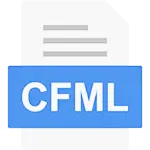How to Set Cookies with the CFCookie Tag in CFML
In this tutorial, we'll discover how to create and manage client-side and server-side cookies with the cfcookie tag in CFML with both tag syntax and script syntax. The max cookie storage available is 4,096 bytes, or 4 kilobytes, and can only be stored as a plain string.
The Attributes
Here is a list of the attributes for the cfcookie tag:
namestring - The alpha-numeric name of the cookie variable. CFML converts all cookie names to uppercase lettering.valuestring - The value assigned to the cookie variable. You can pass a plain text string or a variable with a string data type.expiresany - The expiration date or timeframe for the associated cookie. By default, the cookie is considered "session only" and expires when the user closes the browser tab or window. You can set a date (for example, 07/18/23). You can set a numeric value indicating the number of days until the cookie expires (for example, 30 or 365). You can also set either "now" to delete the cookie now or "never" to delete the cookie in 30 years from the time it's created.secureboolean - Indicates that the cookie can only be assigned or manipulated in a secure SSL environment.pathstring - The query string within the domain where the cookie applies. By default, all pages on the server can access the cookie, but you can set a custom path (for example, path="/path/to/page")domainstring - The domain name in which the content can be assigned or accessed by the user. The domain name must start with a period (for example, ".orangeable.com").httpOnlyboolean - If set to yes, the cookie can only be created or manipulated server-side. This attribute was introduced in ColdFusion 9.encodedValueboolean - Specifies whether or not the cookie should be encoded. This attribute was introduced in ColdFusion 10.preserveCaseboolean - Determines whether or not the cookie name should remain case-sensitive. This attribute was introduced in ColdFusion 10.sameSitestring - Determines whether or not a cookie can be accessed. Values include strict, lax, or none. This attribute was introduced in ColdFusion 2018 and Lucee 5.3.7.33.
Code Examples
Tag Syntax
Here, we'll create a cookie named myCookie that never expires and has a simple string value. The cookie is created for and can only be accessed by this domain in a secure environment (SSL) and is accessible through every path in the site:
<cfcookie name="myCookie"
value="This is a test"
expires="never"
domain=".orangeable.com"
path="/"
secure="yes"
httpOnly="yes" />
Script Syntax
cfcookie(
name="myCookie",
value="This is a test",
expires="never",
domain=".orangeable.com",
path="/",
secure="yes",
httpOnly="yes"
)
Using the cookie scope
cookie.myCookie = {
value="This is a test",
expires="never",
domain=".orangeable.com",
path="/",
secure="yes",
httpOnly="yes"
};Using the cfheader tag
<cfheader name="Set-Cookie"
value="value=This is a test; expires=never; domain=.orangeable.com; path=/; secure=yes; httpOnly=yes;" />
Access and Output A Cookie's Value
Now that you've created your cookie, you can access it using the cookie scope:
<cfoutput>#cookie.myCookie#</cfoutput>
Check If A Cookie Exists
You can easily check if a cookie exists in the user's browser with CFML's built-in StructKeyExists() function before outputting it to the screen. This is the best practice to ensure an error is not thrown on the page:
<cfif StructKeyExists(cookie, "myCookie")>
<cfoutput>#cookie.myCookie#</cfoutput>
</cfif>
Another way to check for cookie existence is with CFML's isDefined() function:
<cfif isDefined("cookie.myCookie")>
<cfoutput>#cookie.myCookie#</cfoutput>
</cfif>Dump the Cookie Scope
To see all accessible cookie data, use the cfdump tag and pass the cookie scope:
<cfdump var="#cookie#">
Delete A Cookie
To delete a cookie, set the expires attribute to now:
<cfcookie name="myCookie" expires="now" />
Conclusion
That covers everything you need to know about cookies in CFML. If you have any questions or need assistance, feel free to reach out in the comments section below.
Written by: Josh Rowe
Created: July 18, 2023
 CFML
CFML